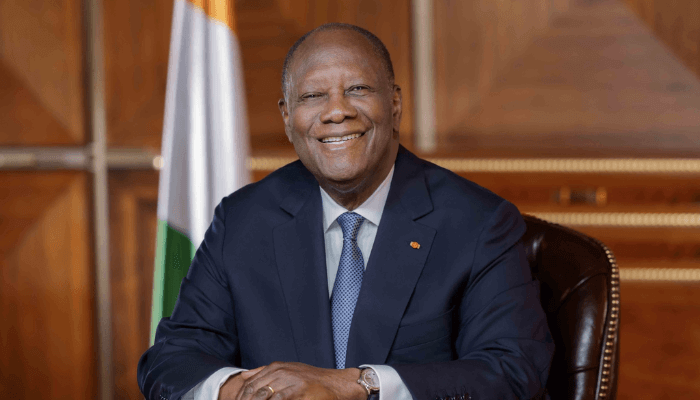Ivory Coast’s Ouattara eyes first-round win as election tests appetite for continuity
Ivory Coast’s Ouattara eyes first-round win as election tests appetite for continuity
When Alassane Ouattara first entered Ivorian politics in the early 1990s, few imagined he would still be at the centre of national life more than three decades later. The softly spoken economist, once better known in Washington than in Abidjan, is now one of Africa’s most enduring leaders and, at 83, one of the oldest.
On October 25, Ouattara will seek a fourth term as president, promising stability, growth, and opportunity in a country he has ruled since 2011. His allies call it a “knockout victory” campaign, aimed at settling the contest in the first round and avoiding a potentially divisive run-off.
Read also: Alassane Ouattara: How Ivory Coasts president stunned West Africa
From technocrat to president
Ouattara’s career began far from the rough and tumble of Ivorian politics. Trained in the United States, he earned a PhD in economics from the University of Pennsylvania and built a sterling résumé at the International Monetary Fund (IMF) and the Central Bank of West African States (BCEAO).
He was drawn into politics by Félix Houphouët-Boigny, Ivory Coast’s founding president, who made him prime minister in 1990. The appointment was widely seen as a signal of trust in his technocratic skills at a time when the country was grappling with economic crisis and demands for democratic reform.
After years of political battles, including periods in exile and disqualification from presidential contests, Ouattara finally won the top job in 2011, but only after a violent post-election conflict that cost more than 3,000 lives.
Read also: Ivory Coast President Ouattara in pole position for fourth term Reuters
Stability and controversy
Since then, Ouattara has presided over a period of relative stability and rapid growth, turning Ivory Coast into one of West Africa’s strongest economies. His government has poured money into infrastructure, roads, and energy projects. For many Ivorians, especially in the north where his support is strongest, he represents order and progress.
But his rule has not been without controversy. The 2016 constitutional reform that effectively removed presidential term limits has been viewed by critics as a power grab. When he announced his decision to run again, after previously pledging to step aside, it reignited debate over whether stability can justify an extended presidency.
Read also: Côte d’Ivoire votes: Key facts about the October 25 presidential election
A campaign built on continuity
Ouattara’s campaign message is one of experience and continuity. At a rally in Abidjan, he told thousands of supporters that he remains “committed to offering the best to our youth, to help them start businesses, work, learn, and be independent.”
His six-pillar manifesto includes ambitious promises, world-class universities, a high-speed train linking Abidjan to Yamoussoukro and Bouaké, and a massive recruitment drive for healthcare workers. The plan, he insists, will consolidate the gains of the past decade while preparing a new generation for leadership.
To justify another run, Ouattara has framed his candidacy as a duty rather than a choice saying his experience is needed “in the face of unprecedented security, economic and monetary challenges.”
The road ahead
Ouattara’s Rassemblement des Houphouëtistes pour la Démocratie et la Paix (RHDP) remains the dominant political machine in the country, controlling most regions and municipalities. In the north, his supporters expect him to sweep the vote. But voter turnout will be crucial especially in southern and western regions where opposition figures remain influential and some communities may stay away from the polls.
For Ouattara, this election is as much about legacy as victory. After 14 years in power, his name is already etched into the country’s modern history. What remains to be seen is whether Ivorians are ready to give him yet another mandate and what kind of Ivory Coast he hopes to leave behind when his long tenure finally ends.

